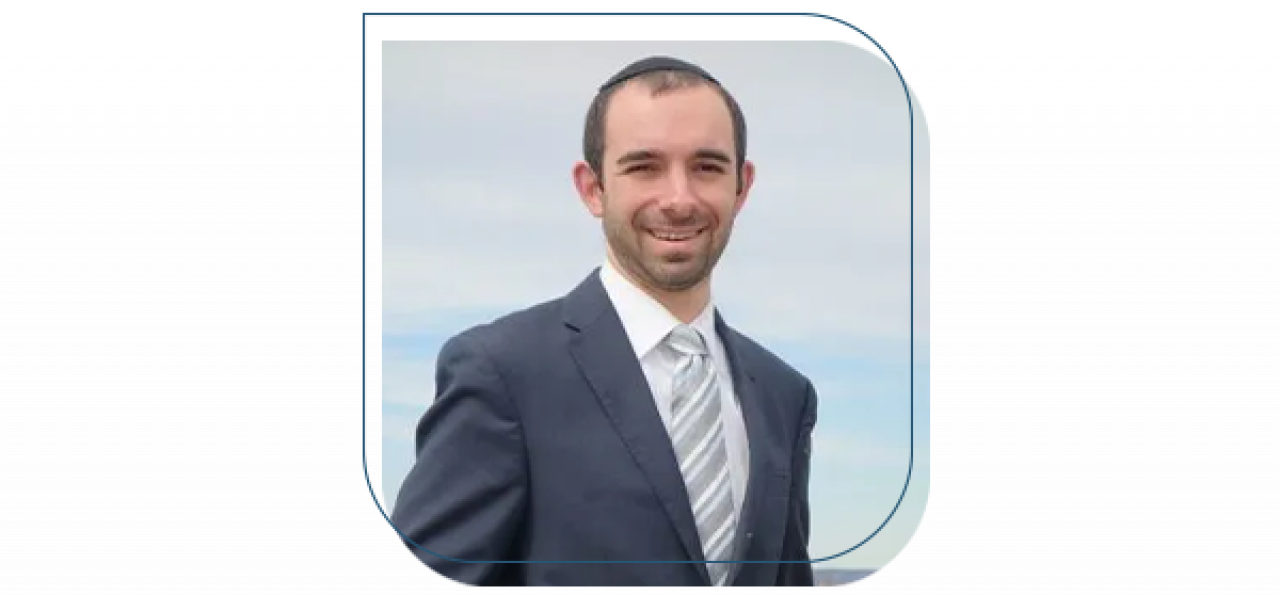Partner Post Teaming up to bolster Holocaust education
By Stacy Sterndale

The Initiative had partnered with Gratz College and its president, Dr. Zev Eleff. Credit: Provided
One of the first things you’d notice about Dr. Zev Eleff is how humble he is. At 35, the Gratz College president may have already accomplished enough for a lifetime. He served as provost at Touro College Illinois outside of Chicago and has authored several books, including the upcoming Dyed in Crimson: Football, Faith, and Remaking Harvard's America available February 2023. Yet he shows no indication of slowing down.
“I read, I write,” Zev says. I’m not particularly interesting.” Humble, indeed.
A historian, grandson of Holocaust survivors, and father of three children, Zev roots for the Baltimore Ravens, solves puzzles, and builds and collects Legos. When religious institutions shut down during the early pandemic, Zev and his children created a Lego Synagogue that featured traditional figures and a few less traditional ones, such as Elsa from “Frozen” and Batman.
When reflecting on his family’s stories, Zev notes that his children are “descendants from people who fought in the Civil War to Holocaust survivors to immigrants in the early 20th century, which is a very American story.”
Located outside of Philadelphia, Gratz College is the oldest independent and pluralist college for Jewish Studies in North America. Today, Gratz enrolls 140 Masters and PhD level students in Holocaust and Genocide Studies, making it the world’s largest graduate level provider for these topics.
Zev notes there can be a tension of positioning other atrocities, such as Darfur, China, and Ukraine, alongside the Holocaust. The curriculum at Gratz “places the Holocaust at the forefront of our learning, but at the same time our students are able to write about reparations, about slave reparations, about inequality and Native American reservations, Darfur, and reception to travesty, all while acknowledging that tension.”
Gratz College is producing digital archives of oral history from Holocaust survivors, supported by the Kort Foundation. A largely volunteer-run operation has produced nearly 900 audio recordings.
Another collection focuses on survivor and former Gratz faculty member Lena Allen Shore, who hid in plain sight passing as gentile in Nazi-occupied Poland. A third collection includes digitizing physical items shared during oral history interviews, including dog tags and displaced person papers.
Zev initially connected to the Initiative and director Boaz Dvir through David Brawer, a Gratz executive committee member and architect of the new Penn State Hillel building, a project also involving Initiative’s own Elliott Weinstein. Zev sees the strengths that each institution offers, stating, “Gratz works best in partnership.” By the Initiative working in public school spaces to support the teaching of the Holocaust and other difficult topics and Gratz providing higher education in Holocaust and Genocide Studies, the two support each other’s missions well.
“It made sense,” Zev says, “but it also speaks to a certain willingness to become much larger than your own local infrastructure.”
In thinking about how this partnership can make a greater impact, Zev asks, “How can we work within the rhythm of local and federal government?”
In looking to the future of the Gratz-Initiative partnership, Zev hopes to see the two “continuing to move the needle and stand at the forefront of education intended to combat hate.”
The partnership creates a broader suite of access points to Holocaust education, including professional learning programming and workshops, micro-credentials, and options to accommodate every learner. Zev identifies an area of success in these goals being to “expand our reach through enlarging the number of options that people have for Holocaust and genocide education.”
“I think that each institution brings certain expertise and humility that if we work together,” Zev says, “we’re much more powerful and much more impactful.”
